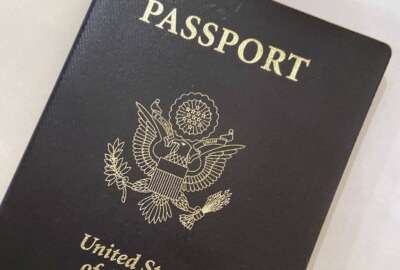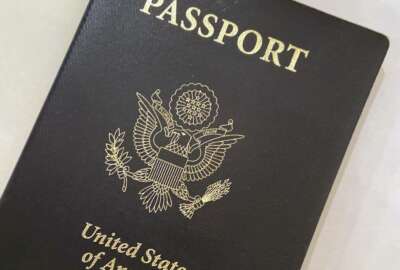State Dept rainy day fund for passports took hit from COVID-19, may take years to recover
A rainy day fund at the State Department meant to help cover its passport and visa operations took a hit from COVID-19 and may take years to recover, even if...
A rainy day fund at the State Department meant to help cover its passport and visa operations took a hit from COVID-19 and may take years to recover, even if revenue bounces back quickly from the pandemic.
The Government Accountability Office found the agency’s Bureau of Consular Affairs is drawing down on carryover funds, after passport and visa revenue dried up at the start of the COVID-19 pandemic.
“While it is not known when or how quickly demand for consular services will return, State officials have indicated that fee revenue may not return to pre-pandemic levels for several fiscal years,” GAO wrote.
The bureau relies on these carryover funds from prior years to help fund its operations, since revenue from passports and visas peaks in the spring and summer, but levels off for the rest of the year.
Lockdowns and the pandemic’s chilling effect on travel resulted in a 41% decline in consular fee revenue in fiscal 2020, compared to the prior year. The bureau collected nearly $4 billion in revenue in fiscal 2019, but that sum fell to $2.3 billion in FY 2020.
GAO estimates the bureau received more than $500 million in supplemental COVID spending to support operations through fiscal years 2020 and 2021.
The State Department told GAO that aside from emergency COVID stimulus spending, the bureau has been fully fee-funded since fiscal 2013.
“As long as there is a structural imbalance between CA’s fee-retention authorities and the costs of the services it provides, the department will not be able to achieve full cost recovery,” the agency wrote to GAO.
The bureau, by the end of fiscal 2019, had about $2 billion in carryover funds, enough to cover more than half its costs for that year. The agency considers 25% to be a healthy carryover balance target at the end of each year. By the start of fiscal 2021, that fund shrank to $1.2 billion.
State Department officials told GAO that maintaining a healthy carryover balance amount is essential to ensuring the bureau’s ability to cover necessary costs at the beginning of each fiscal year.
GAO drew up several models to forecast the bureau’s revenue over the coming years.
Under all scenarios, however, it expects that the bureau’s carryover balances will likely continue to decline from fiscal years 2022 to 2026, if the fees it charges remain consistent.
Under its most optimistic model, which envisions a “post-pandemic surge” in business this fiscal year, and returns to pre-pandemic levels of revenue in fiscal 2023, GAO still estimates the bureau will see its carryover funds draw down to $800 million by fiscal year 2026.
While demand for passports and visas is growing, State Department officials told GAO that fee revenue may not return to pre-pandemic levels for several years.
The report states that even in the most optimistic revenue scenario, GAO analysis shows that the carryover balance in the bureau’s Consular and Border Security Programs (CBSP) account “may fall below the targeted threshold by fiscal year 2026.”
While more Americans are traveling, the State Department, according to GAO, continues to face a “structural imbalance” that predates the pandemic.
The bureau doesn’t retain all the revenue it collects. It sends about 16% to the Treasury Department’s General Fund, which supports day-to-day federal operations. It must also cover the cost of overseas citizen services it either doesn’t charge fees for, or doesn’t keep those fees.
The State Department provides many services to U.S. citizens overseas — including visiting Americans imprisoned overseas, assisting next-of-kin after the death of a citizen abroad, or issuing consular reports of births abroad in order to establish an official record for U.S. citizenship.
State Department officials told GAO the agency covers the cost of assisting Americans abroad through visa application fees.
The bureau, between fiscal years 2013 and 2019, collected more in consular fees than needed to cover its costs. On average, the bureau collected $4.3 billion in revenue, and retained an average of $3.6 billion in revenue.
The State Department last December increased the security surcharge fees for passport books by $20. It now costs most individuals $165 to receive their first U.S. passport book, or $130 to renew.
GAO estimates this price increase could generate up to an additional $316 million in annual fee revenue per year.
While the bureau charges an individual $130 to renew an adult passport book, it only keeps $102 of that fee, while the remaining $29 goes to Treasury’s General Fund.
A patchwork of legislation governs which revenue streams the Bureau of Consular Affairs can use to spend on certain services.
Machine-readable visa fees, for example, which made up nearly half the bureau’s fee revenue in fiscal 2019, can be spent on any consular service. However, fees from its passport security surcharge (PSS) and immigrant visa security surcharge (IVSS) can only be spent on enhanced border security.
The State Department has called on Congress to change its fee authorities to provide the agency with greater flexibility to cover its costs.
“These conditions create a structural imbalance in the CBSP account, according to State officials, which presents a challenge in continuing to fund consular services with fee revenues from a dwindling carryover balance. According to State officials, fee revenues with narrow expenditure authorities make it difficult for CA to align its obligations fully with fee revenues,” GAO wrote.
GAO, however, found the agency hasn’t studied what impact, if any, these changes would have on prices or fee revenues. Agency officials said they would conduct this analysis after any legislation is passed.
“Without a plan for assessing the potential impact of the requested changes, State risks recommending statutory changes that do not align with actual needs. As a result, State could collect consular fees in excess of its costs for some services, thereby over-charging visa or passport applicants,” GAO wrote.
Copyright © 2025 Federal News Network. All rights reserved. This website is not intended for users located within the European Economic Area.
Jory Heckman is a reporter at Federal News Network covering U.S. Postal Service, IRS, big data and technology issues.
Follow @jheckmanWFED






